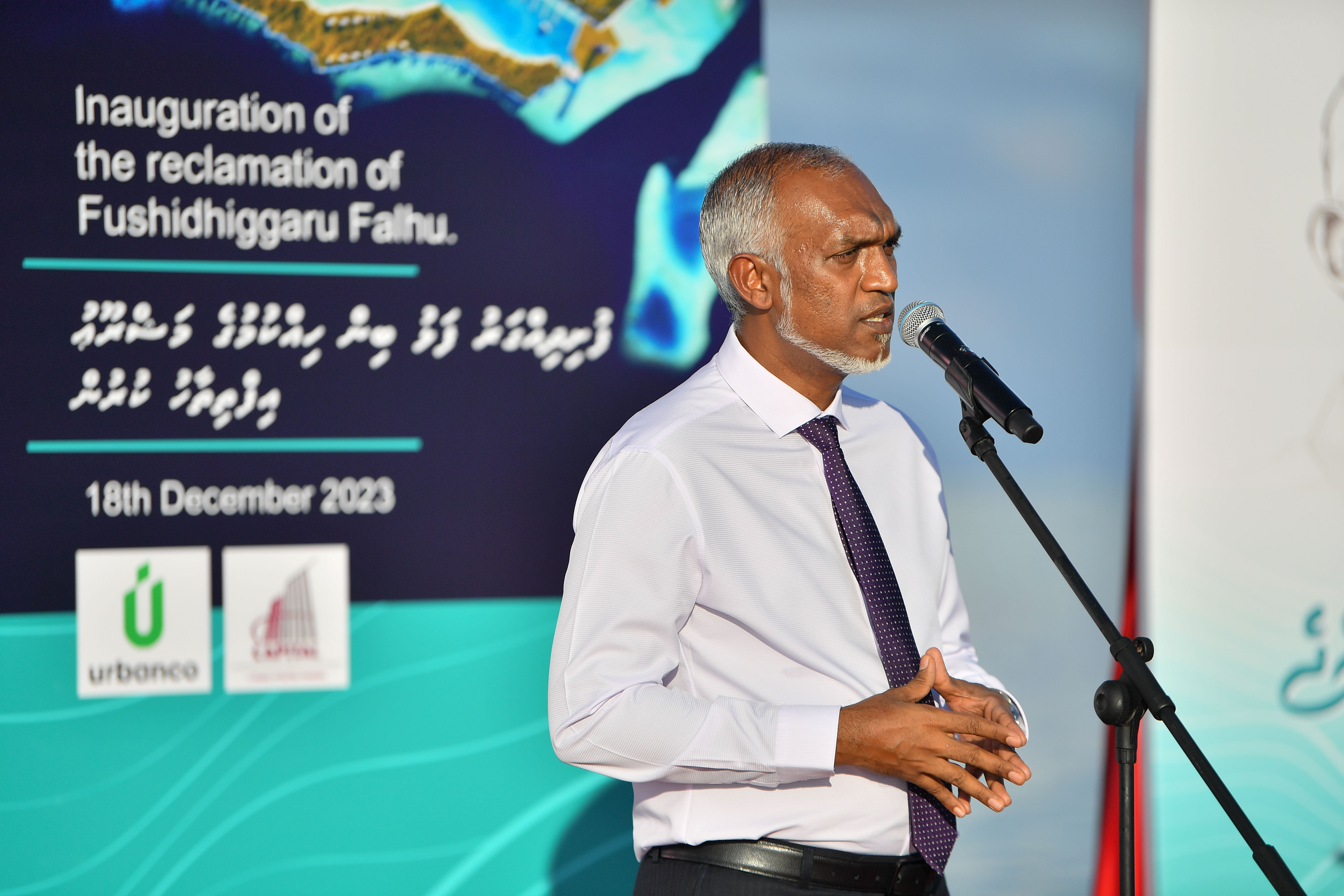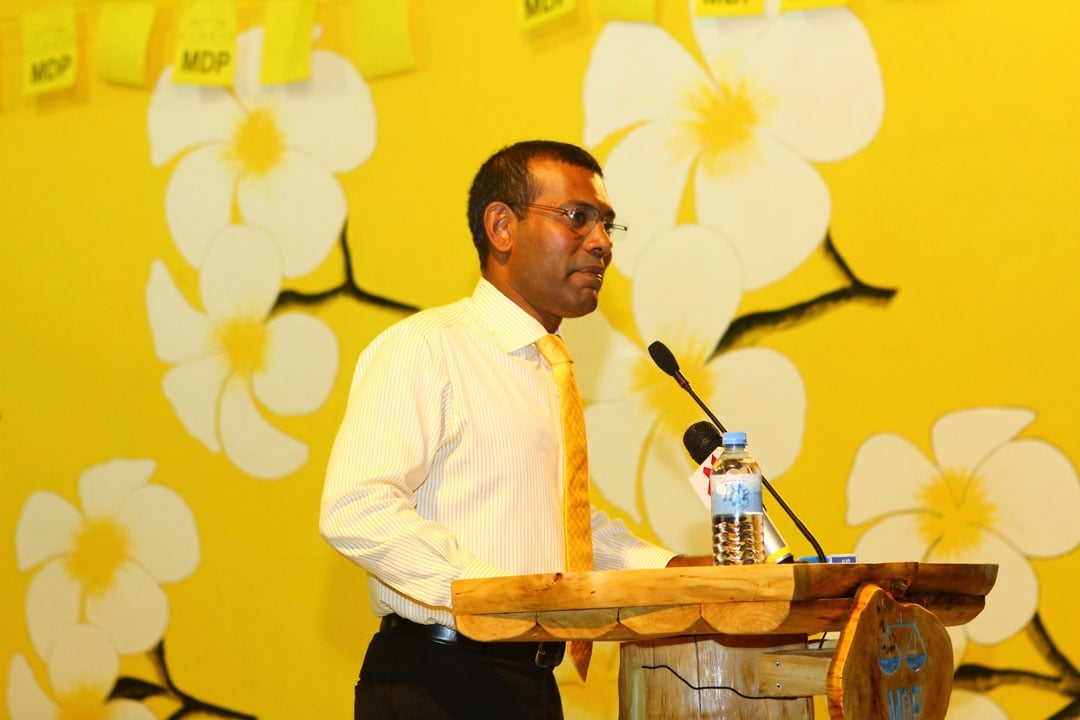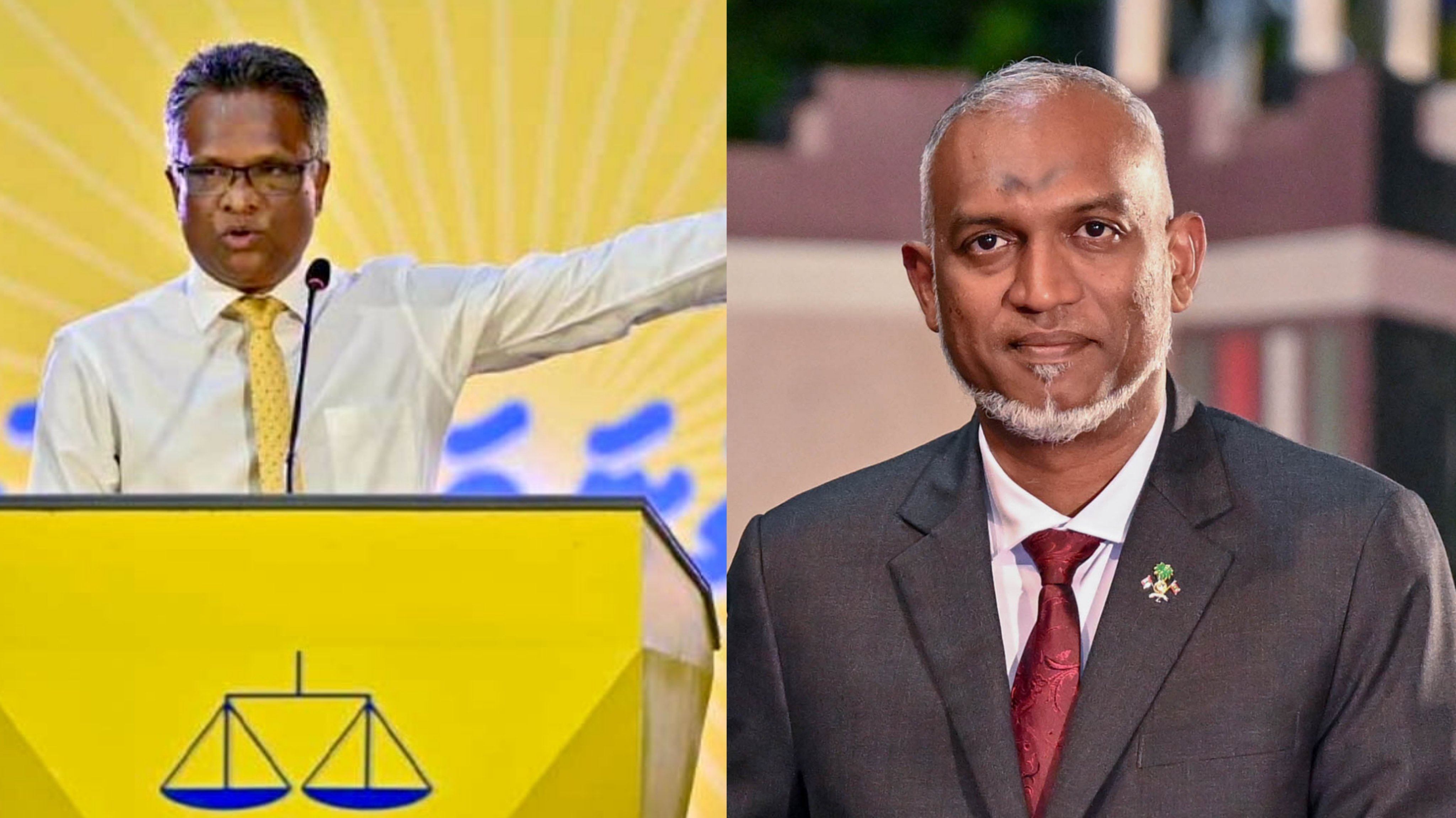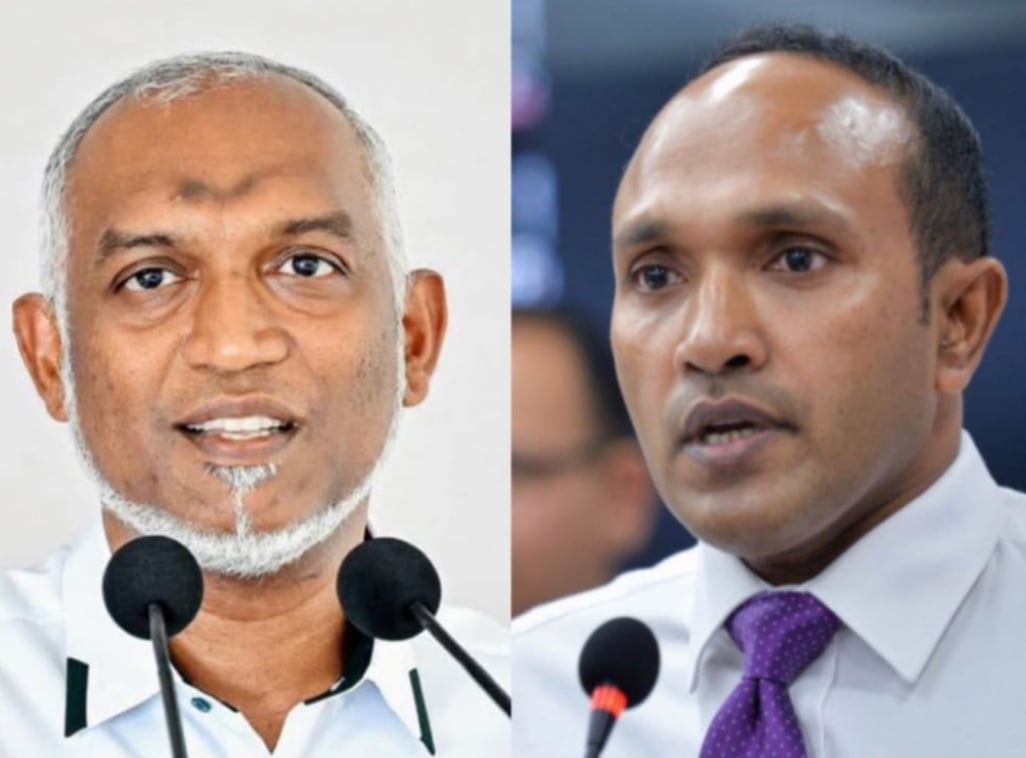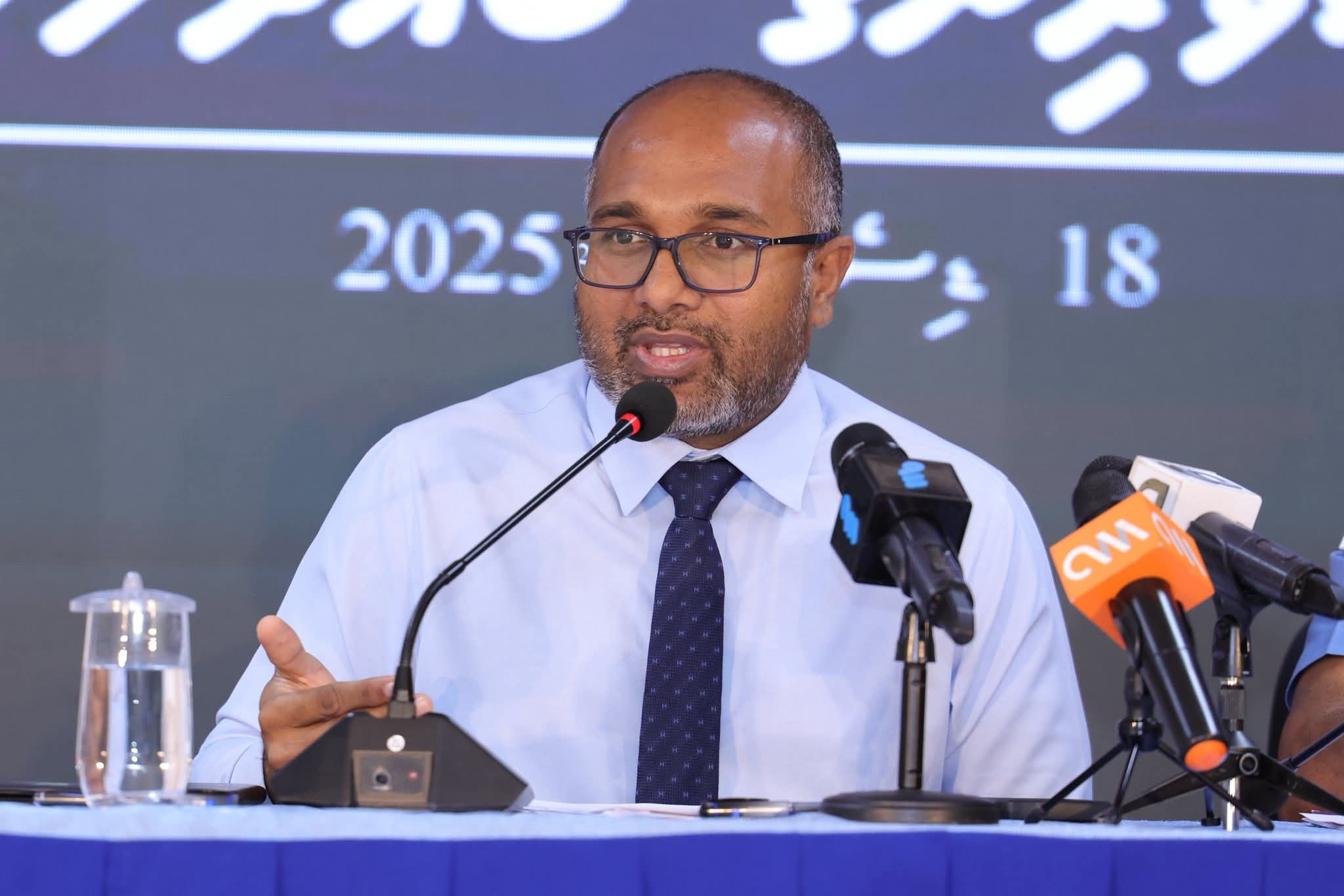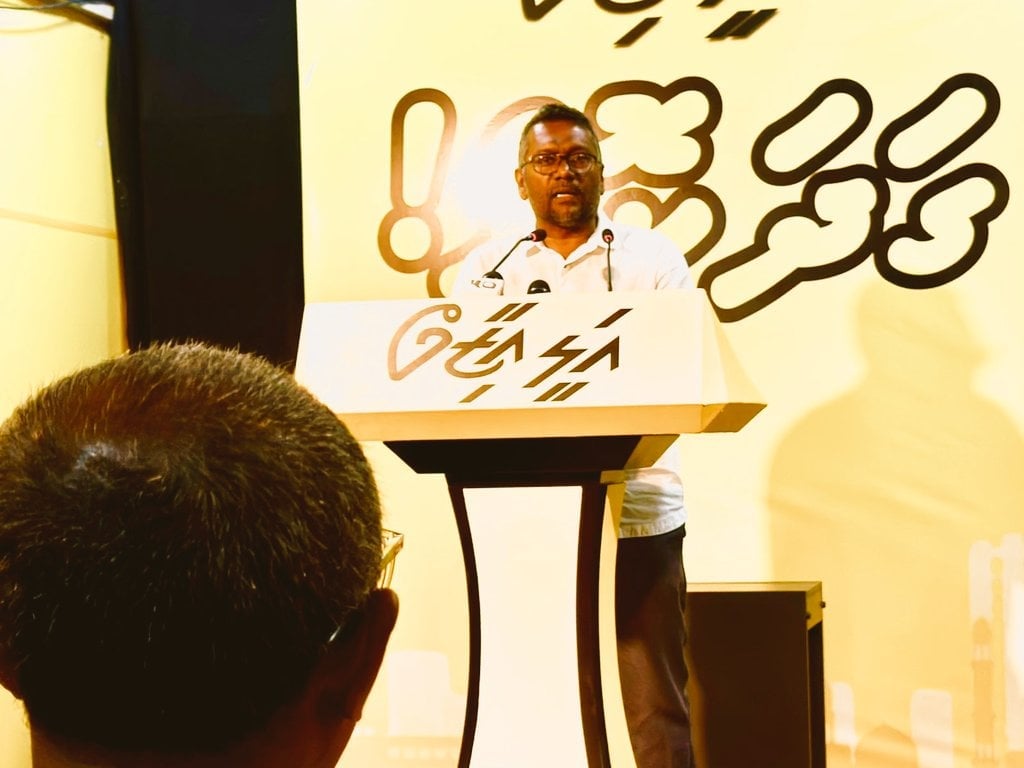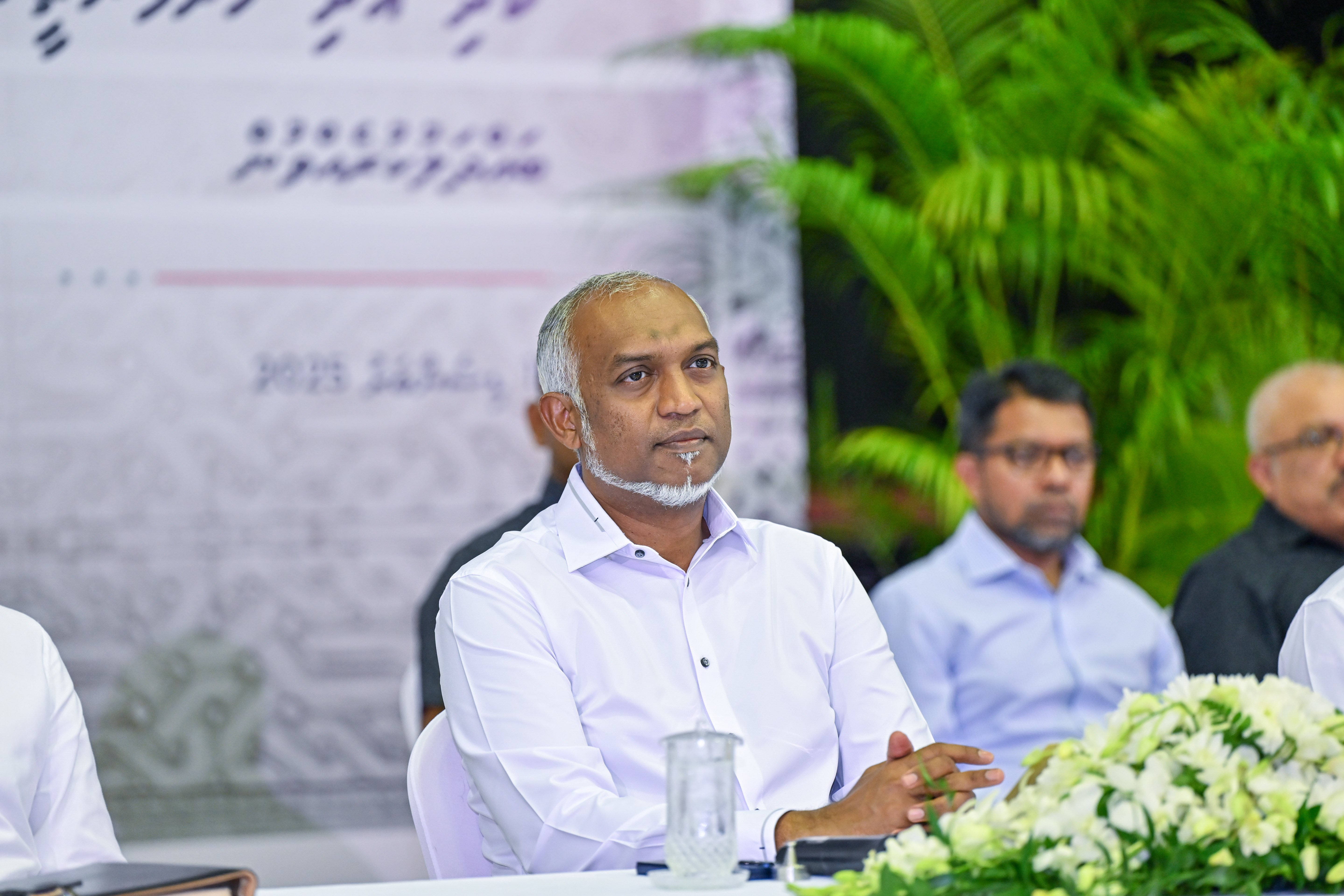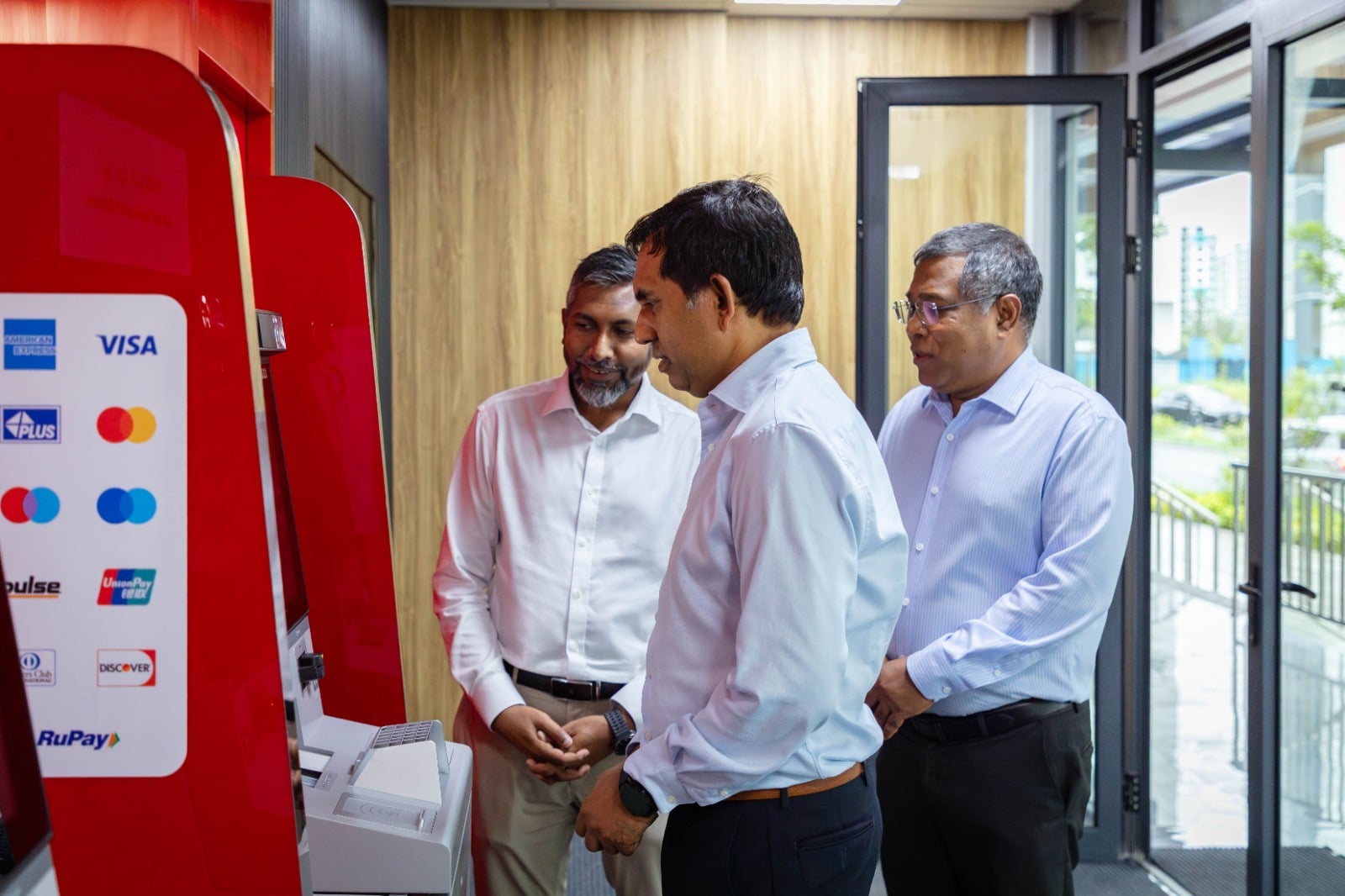As per his Presidential Pledge, President Dr Mohamed Muizzu stated that the 'Ras Malé' reclamation project on the Fushi Dhiggaru lagoon will develop based on a zero-carbon, safe island concept. He made the remarks during the commencement ceremony of the Ras Malé land reclamation project today.
According to the President, Ras Malé is being built as a safe island with adequate area to fulfill international standards. He also stated that there would be three meters above him in the middle and approximately two meters above on either side, indicating that it would surpass the height designated as a secure island under international criteria.
President Dr Muizzu stated that eco-friendly methods would be employed to build all the facilities developed in Ras Malé, adding that the development plans would create a green and comforting atmosphere.
The President additionally stated that Ras Malé will be an eco-friendly, green, and eco-city powered by renewable energy, detailing that vehicles operating in Ras Malé would be powered by environment-friendly or clean energy.
He also stated that 'Ras Malé will be designated as the Maldives Eco City when marketed worldwide.
He further indicated that 'Ras Malé will develop as a convenient place for all members of society, adding that 'Ras Malé would be accessible for people with disabilities. Roads, public grounds, buildings, and other developments will be inclusive and accessible, so people with disabilities can readily participate and enjoy themselves.
During the ceremony, the President also announced that an additional 85 hectares from Gulhi Falhu with a bridge connection and 50 hectares from Giraavaru Falhu would be reclaimed. He stated that once Hulhumalé, 'Ras Malé, Gulhi Falhu, and Giravaru Falhu are connected, they will pave the way towards resolving the Malé region's housing crisis.
One of the primary goals of the Administration is to address traffic congestion and housing in the Malé region, hence the development of Fushi Dhiggaru Lagoon near Malé'. A total of 1,153 hectares of land (approximately three times the size of Hulhumalé) will be recovered from Fushi Dhiggaru Lagoon, making this the Maldives' largest land reclamation project to date. By the end of the project, the government expects to have built 65,000 housing units, comprising plots and apartments.
According to the President, Ras Malé is being built as a safe island with adequate area to fulfill international standards. He also stated that there would be three meters above him in the middle and approximately two meters above on either side, indicating that it would surpass the height designated as a secure island under international criteria.
President Dr Muizzu stated that eco-friendly methods would be employed to build all the facilities developed in Ras Malé, adding that the development plans would create a green and comforting atmosphere.
The President additionally stated that Ras Malé will be an eco-friendly, green, and eco-city powered by renewable energy, detailing that vehicles operating in Ras Malé would be powered by environment-friendly or clean energy.
He also stated that 'Ras Malé will be designated as the Maldives Eco City when marketed worldwide.
He further indicated that 'Ras Malé will develop as a convenient place for all members of society, adding that 'Ras Malé would be accessible for people with disabilities. Roads, public grounds, buildings, and other developments will be inclusive and accessible, so people with disabilities can readily participate and enjoy themselves.
During the ceremony, the President also announced that an additional 85 hectares from Gulhi Falhu with a bridge connection and 50 hectares from Giraavaru Falhu would be reclaimed. He stated that once Hulhumalé, 'Ras Malé, Gulhi Falhu, and Giravaru Falhu are connected, they will pave the way towards resolving the Malé region's housing crisis.
One of the primary goals of the Administration is to address traffic congestion and housing in the Malé region, hence the development of Fushi Dhiggaru Lagoon near Malé'. A total of 1,153 hectares of land (approximately three times the size of Hulhumalé) will be recovered from Fushi Dhiggaru Lagoon, making this the Maldives' largest land reclamation project to date. By the end of the project, the government expects to have built 65,000 housing units, comprising plots and apartments.





